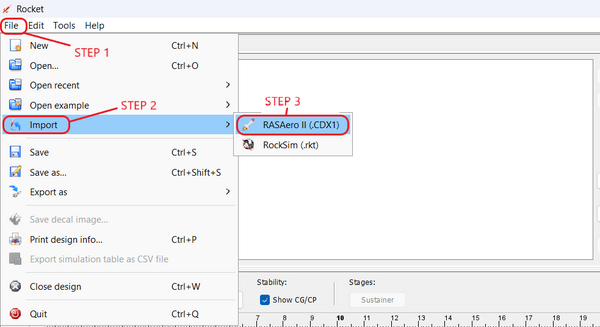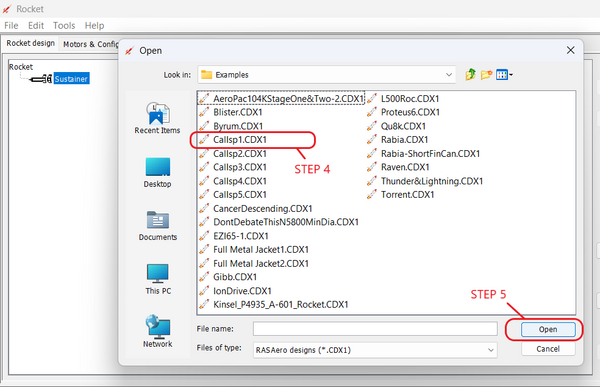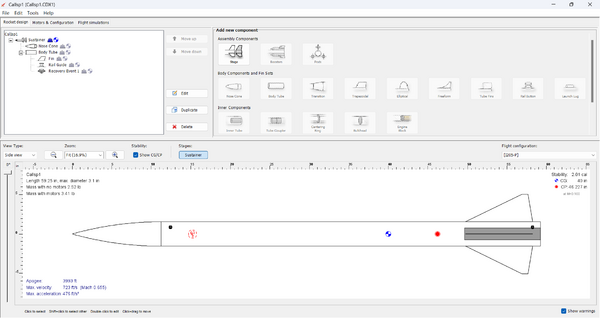Difference between revisions of "Importing and Exporting to Other Applications"
| Line 46: | Line 46: | ||
Five easy steps. It's as simple as that. | Five easy steps. It's as simple as that. | ||
| − | + | === Import Assumptions === | |
INSERT TEXT. . . | INSERT TEXT. . . | ||
| Line 62: | Line 62: | ||
INSERT TEXT. . . | INSERT TEXT. . . | ||
| − | + | === Export Assumptions === | |
INSERT TEXT. . . | INSERT TEXT. . . | ||
| Line 86: | Line 86: | ||
INSERT TEXT. . . | INSERT TEXT. . . | ||
| − | + | === Import Assumptions === | |
INSERT TEXT. . . | INSERT TEXT. . . | ||
| Line 102: | Line 102: | ||
INSERT TEXT. . . | INSERT TEXT. . . | ||
| − | + | === Export Assumptions === | |
INSERT TEXT. . . | INSERT TEXT. . . | ||
Revision as of 09:37, 12 April 2023
|
The current User's Guide is very much a work in progress, any help would be greatly appreciated! |
Overview
INSERT TEXT. . .
RASAero II
RASAero II (often simply caller RASAero) is available from Rogers Aeroscience, copyrighted as RASAero Aerodynamic Analysis and Flight Simulation Software by Charles E. Rogers and David Cooper.
RASAero is a combined aerodynamic analysis and flight simulation software package for model rockets and high power rockets, amateur rockets, and sounding rockets that is single and multi-stage capable. RASAero supports nested upper stages (an upper stage motor which slides into the booster using a "boattail" component) and features protuberance drag models for missile raceways, camera shrouds, fin brackets, and so on. RASAero can also be used for predicting aerodynamic coefficients for use in other flight simulation programs for orbital rockets.
The RASAero aerodynamic prediction methods are purported to be the most accurate available for model, high power, and amateur rockets, and are said to be of equivalent accuracy to professional engineering method aerodynamic analysis codes used for missiles, sounding rockets, and space launch vehicles.
Basic Structure
The RASAero basic structure requires a very specific architecture which must be followed if a design is to be imported from or exported to RASAero. Because OpenRocket is capable of importing more complex structures than what it can import, the rules governing the OpenRocket RASAero import and export features will be discussed in those subsections.
OpenRocket Import Feature
Design Architecture
INSERT TEXT. . .
Accessing the Import Feature
The RASAero import feature in OpenRocket is accessed from the File menu. First, left-click on File to open the drop-down menu, then left-click on Import to open the application menu, and select RASAero with a third left-cleick.
When that third left-click is made, the import file menu will open. If you are new to the RASAero import feature, you may want to navigate to the example directory that is packaged with RASAero and select one of the example designs. For this discussion, the "CalIsp1.CDX1 file was selected, then "Open was left-clicked.
Five easy steps. It's as simple as that.
Import Assumptions
INSERT TEXT. . .
OpenRocket Export Feature
INSERT TEXT. . .
Design Architecture
INSERT TEXT. . .
Accessing the Export Feature
INSERT TEXT. . .
Export Assumptions
INSERT TEXT. . .
Rocksim 10
INSERT TEXT. . .
Basic Structure
INSERT TEXT. . .
OpenRocket Import Feature
INSERT TEXT. . .
Design Architecture
INSERT TEXT. . .
Accessing the Import Feature
INSERT TEXT. . .
Import Assumptions
INSERT TEXT. . .
OpenRocket Export Feature
INSERT TEXT. . .
Design Architecture
INSERT TEXT. . .
Accessing the Export Feature
INSERT TEXT. . .
Export Assumptions
INSERT TEXT. . .


